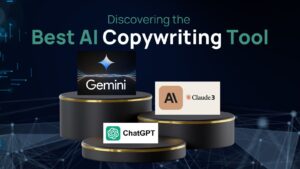ChatGPT vs Google: Unveiling the Future of Online Interactions and the Search Engine Landscape
The internet is abuzz with discussions about OpenAI’s ChatGPT and its potential to revolutionize how we interact online.
With millions of users, constant social media mentions, and numerous headlines, it’s hard to ignore the impact of this innovative chatbot.
But what does this mean for Google? Is ChatGPT a formidable threat to the search engine giant?
In this comprehensive blog post, we delve into the ChatGPT vs Google debate.
Google vs ChatGPT: Understanding the Fundamental Distinctions
ChatGPT, also known as Generative Pre-Trained Transformer, is an AI chatbot designed to engage in human-like conversations.
Powered by the GPT-3.5 large language model, it leverages natural language processing and is trained using human feedback.
OpenAI introduced the prototype of ChatGPT in November 2022, and currently, the research preview version is available for free to all users.
On the other hand, Google reigns as a dominant internet search engine, capturing a significant market share.
Preferred by 9 out of 10 internet users for information retrieval, Google, owned by Google LLC, operates under the umbrella of Alphabet Inc.
Its extensive index comprises hundreds of billions of web pages, occupying a staggering size of over 100,000,000 gigabytes.
In addition to its search engine prowess, Google unveiled Google LaMDA in 2021, a breakthrough conversation technology, reinforcing its position as an “AI-first” company.
With a commitment to amplifying AI and NLP efforts in the future, Google is poised to make significant strides in these domains.
The Showdown: ChatGPT vs Google
Gear Up for an Epic Face-Off. Who Will Emerge Victorious?
To gauge the capabilities of Google and ChatGPT, we presented them with a different query: “What are the health benefits of regular exercise?”
Both platforms provided informative responses, but it was ChatGPT’s succinct and focused answer that caught my attention.
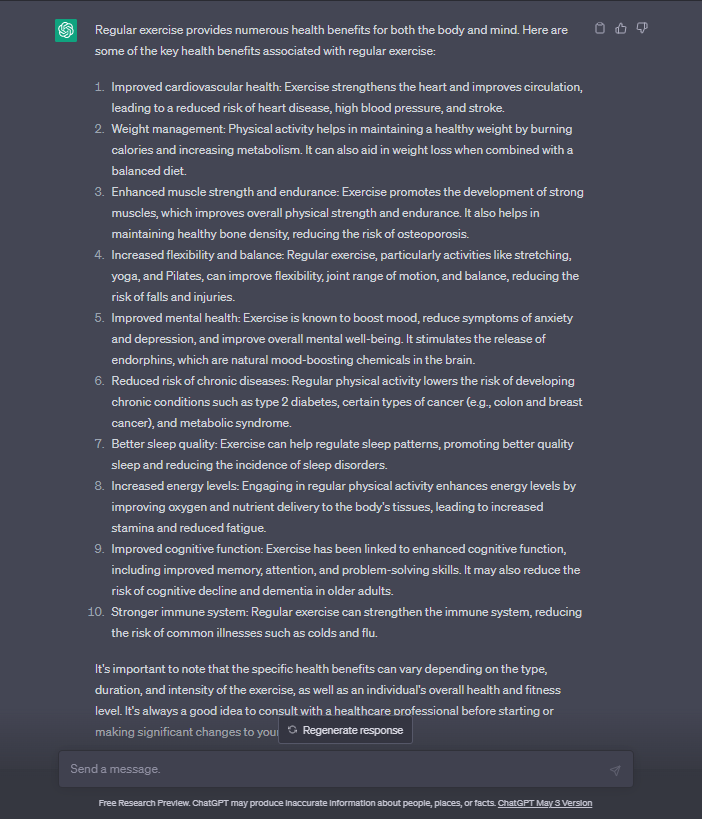
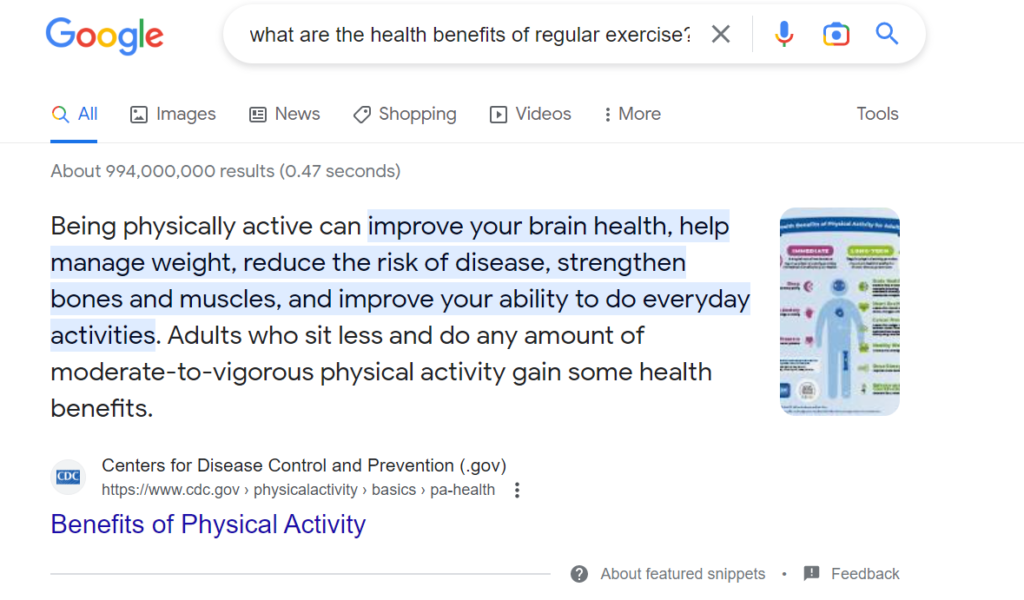
Factuality Check

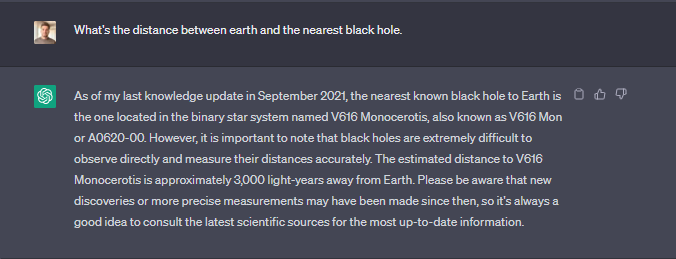
We queried Google and ChatGPT about the distance between Earth and the nearest black hole.
While ChatGPT’s reply was succinct and direct, it did show its update limits (September 2021).
Real-Life Use Cases
ChatGPT stands out by comprehending users’ queries and delivering precise solutions, making it a unique tool.
It is capable of resolving a wide range of problems, whether they involve coding, writing, or virtually any other domain.
For instance, consider the following screenshot where we sought suggestions from both ChatGPT and Google for a short description for an ecommerce store.
If you’re an e-commerce store owner, ChatGPT can prove invaluable in accomplishing diverse tasks.
ChatGPT consistently exhibits creativity, further highlighting its versatility and effectiveness.
Google couldn’t really help here, so ChatGPT takes this one home also!
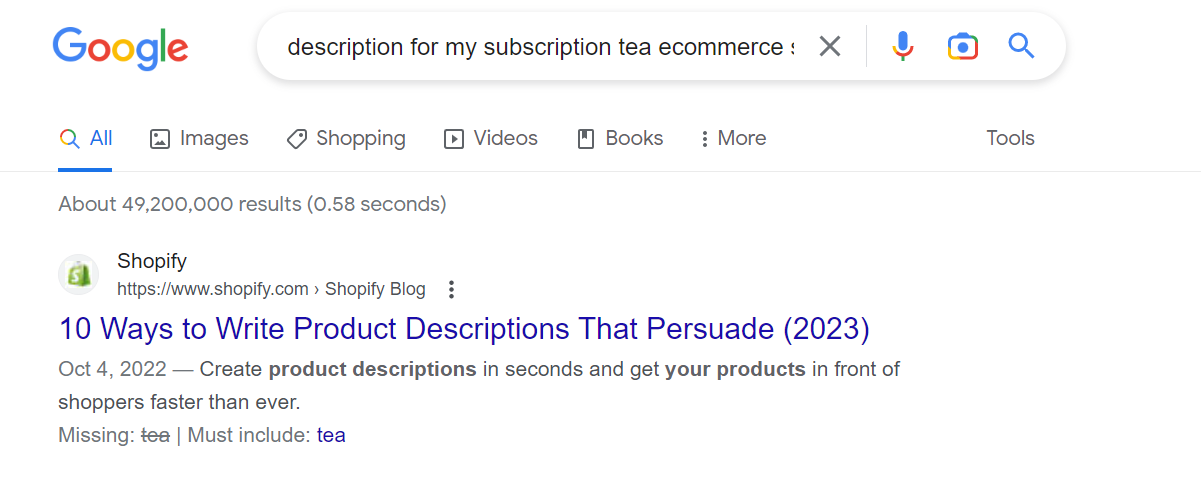
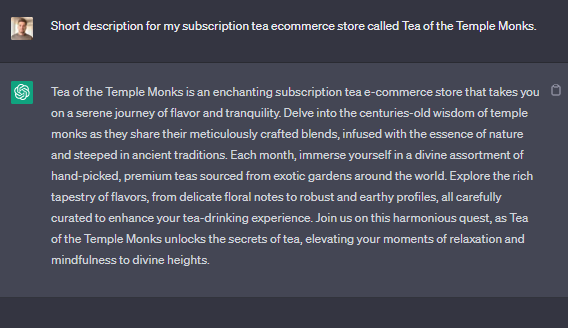
Six main differences between ChatGPT vs Google
1. Architecture
ChatGPT is based on the GPT (Generative Pre-trained Transformer) architecture developed by OpenAI.
It is a deep learning model that uses transformer networks to generate human-like text responses.
On the other hand, Google utilizes a variety of architectures and models depending on the specific application, ranging from deep learning models to traditional algorithms.
Imagine a virtual assistant that can carry on a conversation with you, providing detailed answers to your questions.
For instance, if you ask, “What is the weather like today?” ChatGPT can generate a response like, “Today’s weather is sunny with a high of 75 degrees Fahrenheit.”
When you use the Google Search engine and type in “weather today,” Google’s algorithms process your query and retrieve relevant information from various sources to display a summarized weather forecast for your location, along with additional details like hourly temperature changes, precipitation chances, and more.
2. Purpose
ChatGPT is designed as a conversational AI language model, focused on generating coherent and contextually relevant responses to user queries.
It excels in natural language understanding and generation tasks, providing detailed responses to a wide range of questions.
Google, on the other hand, is a multinational technology company that offers a vast array of services, including search engines, advertising platforms, cloud computing, productivity tools, and more.
Google’s focus is on providing various online services and technologies to users.
Suppose you have a chatbot integrated into an e-commerce website.
Customers can ask the chatbot questions like, “What are the shipping options for this product?”
ChatGPT can generate a response providing shipping details, available options, and estimated delivery times.
If you need directions to a specific location, you can use Google Maps.
By entering the destination, Google Maps calculates the best route based on real-time traffic data, provides turn-by-turn directions, and even suggests alternative routes to avoid congestion.
3. Ownership and Development
OpenAI developed ChatGPT with the goal of creating a conversational AI model that benefits society as a whole.
OpenAI’s team of researchers and engineers continually improve and update the model to enhance its capabilities and address limitations.
As a company, Google develops and maintains its services and products, including search engines, Gmail, Google Drive, Android, and others.
Google invests in research and development to innovate and provide new features and technologies to its users.
4. Access and Integration
As a developer, you can integrate ChatGPT into your application or service by using OpenAI’s API.
This allows you to leverage ChatGPT’s conversational capabilities and provide your users with interactive and helpful conversational experiences.
Developers can utilize Google’s APIs, such as the Google Maps API, to access location data and embed maps into their applications.
By integrating Google’s APIs, developers can leverage Google’s services and functionalities within their own projects.
5. Data and Training
ChatGPT is trained on a diverse range of publicly available text from the internet, including articles, books, and websites.
It learns patterns and structures from this data to generate coherent and contextually relevant responses during conversations.
Google has access to its vast search index, which includes a significant portion of the internet.
It utilizes this data, along with user interactions and feedback, to improve its search algorithms, provide accurate search results, and tailor services to user preferences.
6. Scope
ChatGPT’s primary focus is on understanding and generating natural language responses.
It excels in conversational tasks, such as answering questions, providing explanations, and engaging in interactive dialogues.
Google offers a wide range of services beyond language processing.
For instance, Google Search provides access to information across the web, Google Drive allows users to store and collaborate on files, and Google Ads enables businesses to create and manage online advertising campaigns.
Is ChatGPT poised to replace Google?
The question of whether ChatGPT will replace Google remains a topic of debate.
However, it is undeniable that substantial changes are on the horizon, promising positive transformations.
Before these transformations occur, it’s worth exploring alternative options to ChatGPT.
Conclusion
In conclusion, the emergence of ChatGPT introduces a significant shift in the future of search and information retrieval.
While Google has long been the dominant player in this domain, ChatGPT represents a new approach to conversational AI that focuses on natural language understanding and generation.
By integrating ChatGPT into search experiences, we can envision a future where users interact with search engines and other online services in a more conversational and intuitive manner.
ChatGPT’s ability to generate coherent and contextually relevant responses opens up possibilities for enhanced user engagement, personalized recommendations, and more interactive search experiences.
While Google’s vast array of services and proprietary data remain invaluable, the role of ChatGPT as a conversational AI language model paves the way for exciting advancements in the way we search, access information, and interact with technology in the years to come.



